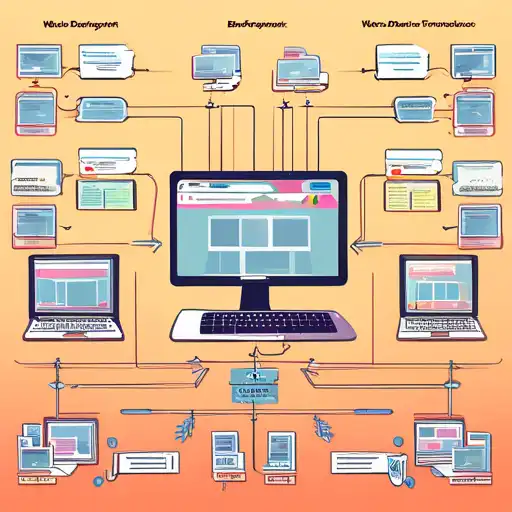Understanding Web Development Frameworks
In the ever-evolving world of web development, choosing the right framework can be a daunting task. With a plethora of options available, each promising to be the best, how do you decide which one is right for your project? This guide aims to demystify the process, helping you navigate through the maze of web development frameworks to make an informed decision.
What Are Web Development Frameworks?
Web development frameworks are software libraries designed to support the development of web applications, including web services, web resources, and web APIs. They provide a standard way to build and deploy web applications on the World Wide Web. Frameworks can significantly reduce the time and effort required to develop a web application by providing pre-written code for common operations.
Types of Web Development Frameworks
There are primarily two types of web development frameworks: frontend (or client-side) and backend (or server-side). Frontend frameworks, such as React, Angular, and Vue.js, focus on the user interface and user experience. Backend frameworks, like Django, Ruby on Rails, and Express, handle the server-side logic, database interactions, and application integration.
Factors to Consider When Choosing a Framework
- Project Requirements: The nature of your project plays a crucial role in determining the right framework. For instance, a single-page application might benefit from a frontend framework like React or Angular.
- Community and Support: A strong community and good documentation can be invaluable, especially when you encounter issues or need to scale your application.
- Learning Curve: Consider the time it will take for you or your team to become proficient with the framework.
- Performance: Evaluate the performance benchmarks of the framework to ensure it meets your application's needs.
Popular Web Development Frameworks in 2023
Here are some of the most popular web development frameworks this year:
- React: A JavaScript library for building user interfaces, maintained by Facebook.
- Angular: A platform and framework for building single-page client applications using HTML and TypeScript.
- Vue.js: An approachable, performant, and versatile framework for building web user interfaces.
- Django: A high-level Python web framework that encourages rapid development and clean, pragmatic design.
- Ruby on Rails: A server-side web application framework written in Ruby under the MIT License.
Conclusion
Choosing the right web development framework is a critical decision that can affect the success of your project. By considering factors such as project requirements, community support, learning curve, and performance, you can select a framework that best suits your needs. Remember, the best framework is the one that aligns with your project goals and team expertise.
For more insights into web development, check out our guide on the latest web development trends.
